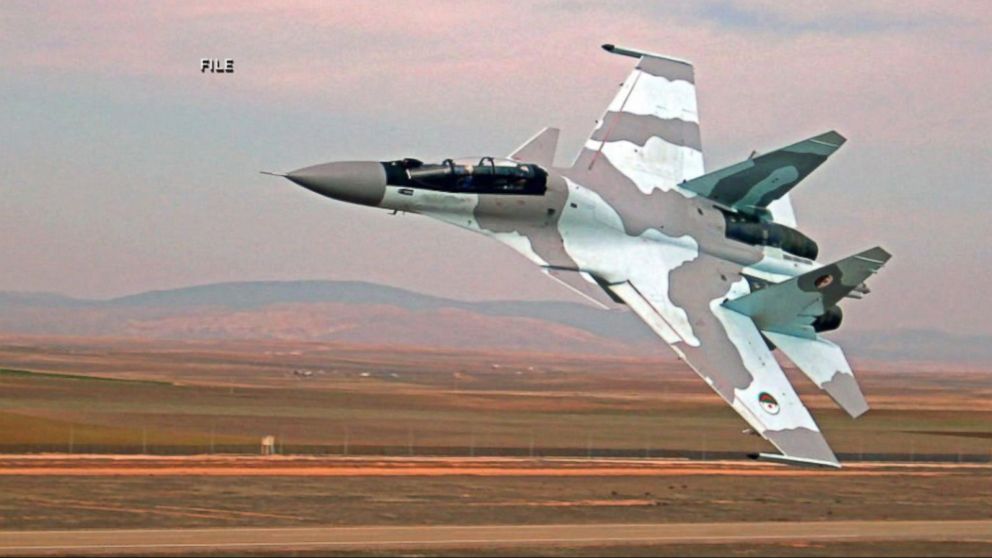Chinese fighter flew inverted above US Air Force jet over Yellow Sea
— -- A Chinese fighter jet conducted a barrel roll over a U.S. Air Force reconnaissance plane flying in international airspace above the Yellow Sea on Wednesday, according to a U.S. official.
The U.S. deemed the incident "unprofessional" and is addressing its concerns to China about the incident through diplomatic and military channels.
"Two Chinese SU-30 aircraft intercepted a U.S. WC-135 Constant Phoenix aircraft conducting a routine mission in international airspace over the East China Sea," said Lieutenant Colonel Lori Hodge, a spokesperson for the U.S Air Force's Pacific Air Forces in a statement. "The WC-135 was operating in accordance with international law."
The Yellow Sea is the name given to the northern part of the East China Sea, west of the Korean peninsula.
Known as "Constant Phoenix," the WC-135 aircraft "sniffs" for radioactive isotopes in the atmosphere that are the tell-tale signs of a nuclear test. It is deployed to Northeast Asia in advance of possible North Korean underground nuclear tests.
According to the U.S. official, the two Chinese fighters came within 150 feet of the American plane.
One of the Chinese fighters executed an "inverted maneuver" above the American plane, essentially conducting a barrel roll above the plane, said the official.
"While we are still investigating the incident, initial reports from the U.S. aircrew characterized the intercept as unprofessional," Hodge said. "The issue is being addressed with China through appropriate diplomatic and military channels."
She added, "This interaction is considered unprofessional due to the maneuvers by the Chinese pilot, as well as the speeds and proximity of both aircraft."
"Distances always have a bearing on how we characterize interactions," said Hodge. "Each interaction is different, and in this case, we are not providing more specifics as we would rather discuss it privately with China through our Military Maritime Consultative Agreement meeting and through diplomatic channels. This will allow us to continue building confidence with our Chinese counterparts on expected maneuvering to avoid mishaps.




